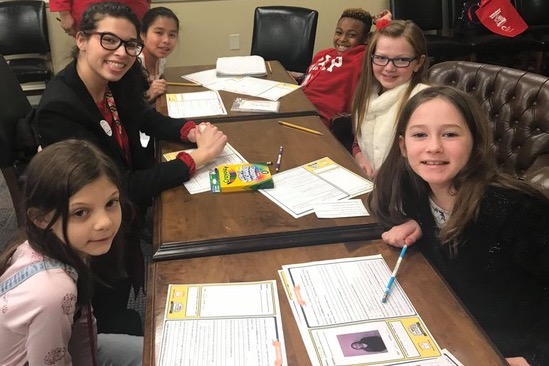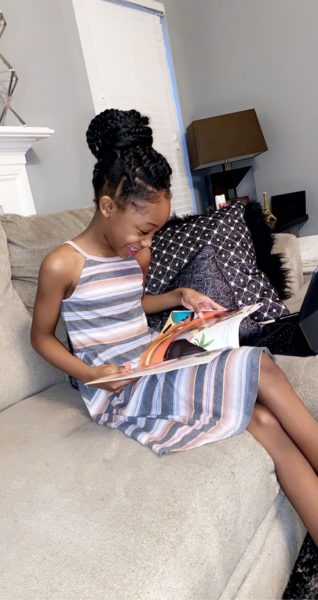

Hailey Jerome considers herself lucky. Her father has dyslexia, so when she was an early learner struggling in school, her parents recognized the signs.
“I got tested in second grade,” she said. “I also got really lucky my parents were able to afford to get me tested, not like through the school system, and then they could send me to a private school that specialized in students with dyslexia. … I didn’t have such a difficult time as other people did in high school and elementary school.”
Jerome has been encouraged from a young age to advocate for the modifications and accommodations she needed. Now, she’s advocating on behalf of other students who haven’t been as fortunate.
She’s one of 15 people on the Young Adult Leadership Council for the National Center for Learning Disabilities (NCLD). On Tuesday, June 22, Jerome will bring her passion for helping others with learning differences to a national town hall called Together We Stand, hosted by NCLD and Eye to Eye National.
The event will feature the perspectives of dozens of LD advocates, longtime community allies, and emerging advocates. The day is meant for envisioning an inclusive, intersectional, and just future.
“Right now, people aren’t being polite about what they don’t like — anti-semitic or anti-Black or anti-gay, for example,” said Jerome, a Charlotte resident. “[People] aren’t holding back anymore, so it’s becoming a pretty scary place to be [considered] different. The town hall is meant to come together and get us pumped for an LD day of action, and how we want to be a community and advocate for the foreseeable future. It’s to provide hope and optimism about what we can accomplish as a community together.”
Jerome has dyslexia, dysgraphia, dyscalculia, audio processing disorder, and ADHD. She also has challenges with working memory.
“I feel like every time I got tested, something new came up,” she said, laughing.
Throughout her schooling, though, she found ways to address these issues and learn. Now she spends a lot of her free time trying to ensure students like her get the same supports. She has lobbied for a new reading law in Maryland, works with Decoding Dyslexia NC, and is looking at mentoring young kids in and around Charlotte.
She’s also advocating for passage of the RISE Act, which would save college kids money on unnecessary testing. Currently, many colleges require high school students who received accommodations for diagnosed learning differences to retest before having access to those same accommodations in college.
But people don’t outgrow learning disabilities.
“Through NCLD, it really drove home that people didn’t have the supports [I did] and their parents didn’t always know how to help them,” Jerome said. “The RISE Act is, basically, we’re trying to get colleges to accept high school or middle school testing so that you can have accommodations in college. A lot of colleges make you get retested, which is expensive. Colleges might [have] the idea that you don’t have your learning disability anymore, but the fact is you always have a learning disability. It’s just whether or not you figured out a way to work around it.”
At the virtual town hall on Tuesday, Jerome hopes to advocate for greater awareness of these issues, and join many others to raise awareness of what learning differences look like and fight against stigma associated with having them.
“It’s a chance to envision a future as a safe place where we can all come together to talk about the experiences that we’ve had,” she said.


